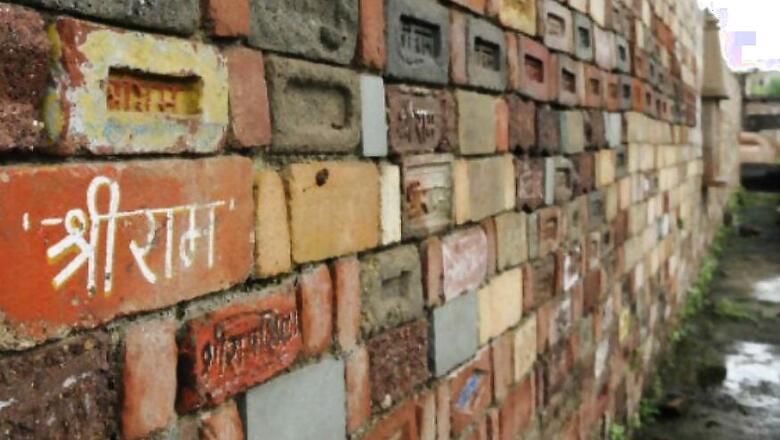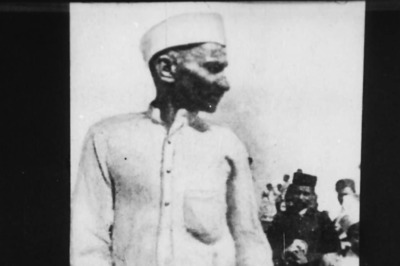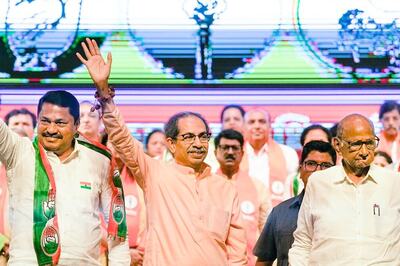
views
New Delhi: At a time when the Ayodhya issue is back in spotlight ahead of the UP polls in 2017, a book penned by a former IPS officer has claimed that the Ram temple was not demolished during the reign of Babar but of Aurangzeb.
Quoting from old files during British period, some ancient Sanskrit texts and reviews of archaeological excavation, the book has attempted to project that a Ram Janmabhoomi temple did exist in Ayodhya before a mosque was built on it.
The book "Ayodhya Revisited", written by Kishore Kunal, a former Gujarat cadre IPS officer of 1972 batch, propounds a new thesis about the period of the mosque's construction and seeks to demolish earlier beliefs on the issue.
Kunal hails from Bihar and is known there for his stint as a police officer and later as Administrator and President of Bihar Board of Religious Trusts. He was Officer on Special Duty in Home Ministry and officially associated with the Ayodhya dispute in 1990 before the disputed structure was razed to the ground. After retirement, he was Vice Chancellor of KSD Sanskrit University Darbhanga.
Former Chief Justice of India GB Patnaik has written the foreword of the book in which he says that the author has given a "new dimension to the history of Ayodhya" and establishes several facts, which are contrary to the common beliefs and also the opinions of several historians.
The book says the "demolition of the temple" did not take place in 1528 AD (during Babar's regime) but in 1660 AD when Fedai Khan was the Governor of Aurangzeb in Ayodhya.
Kunal (rpt Kunal) has held the inscriptions on the disputed site to be fake and tried to prove that the conclusions drawn by a number of historians on the basis of it are wrong.
"It is wrong to say that Babar ordered the demolition of the Ram Janmabhoomi Temple at Ayodhya. He never visited Ayodhya. The claim of the historians that Mir Baqi, the then governor of Awadh, got the Babri mosque constructed in 1528 is fictitious," he says.
Kunal goes on to argue that Mughal rulers right from Babur to Shahjahan were quite liberal and extended patronage to all religions. "All the Mughal emperors from Babur to Shahjahan were magnanimous and liberal rulers and the Bairagis of Ayodhya enjoyed patronage of the first four nawabs of Awadh.
"However, during the long rule of Aurangzeb, the country was engulfed in the fire of fanaticism," he says in the book.


















Comments
0 comment